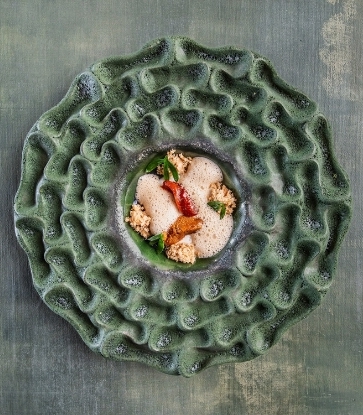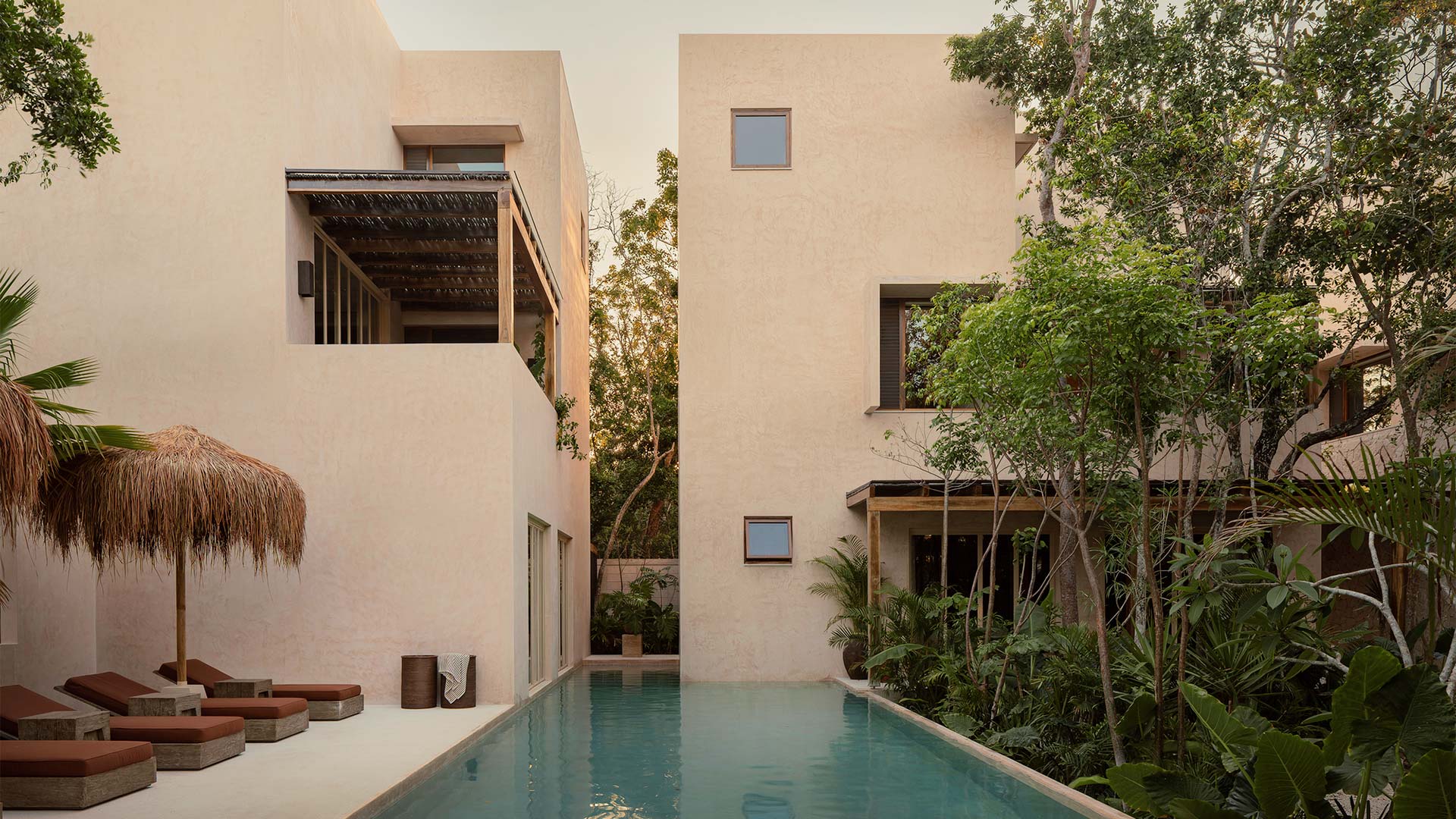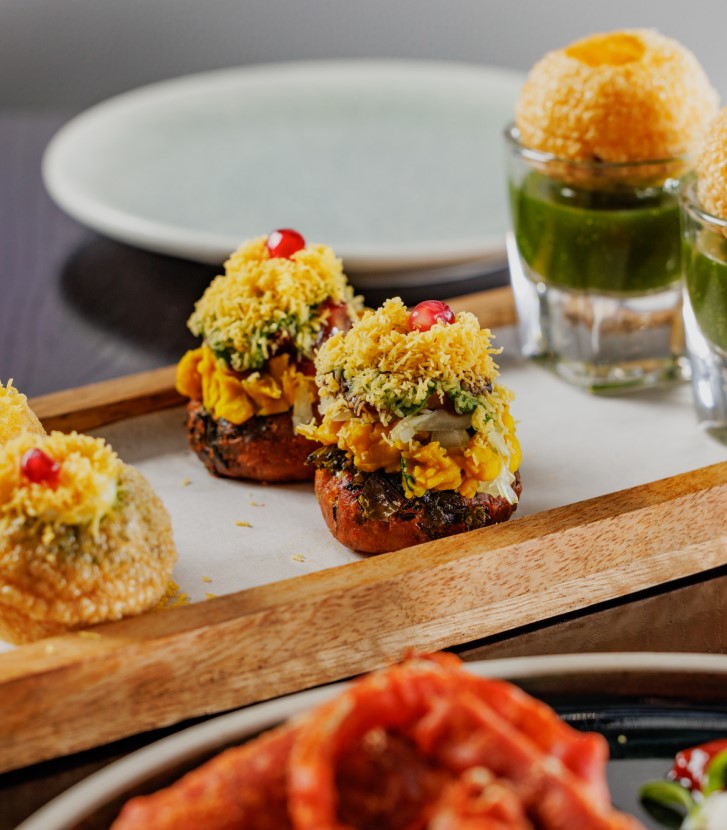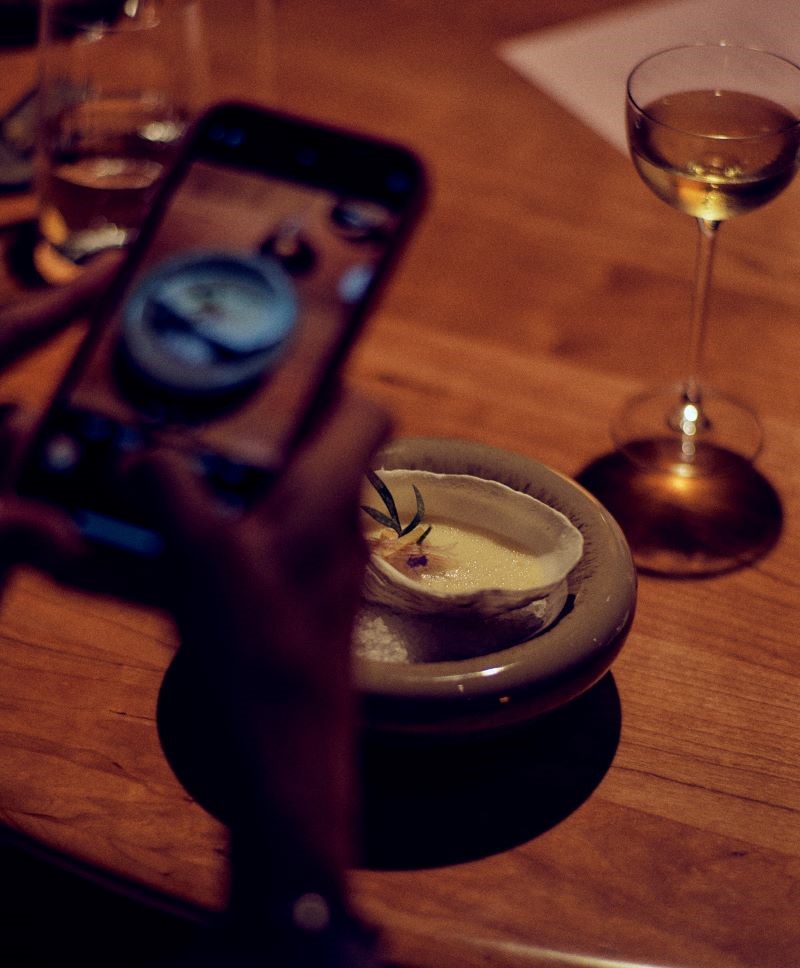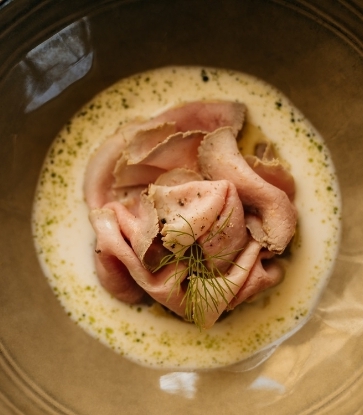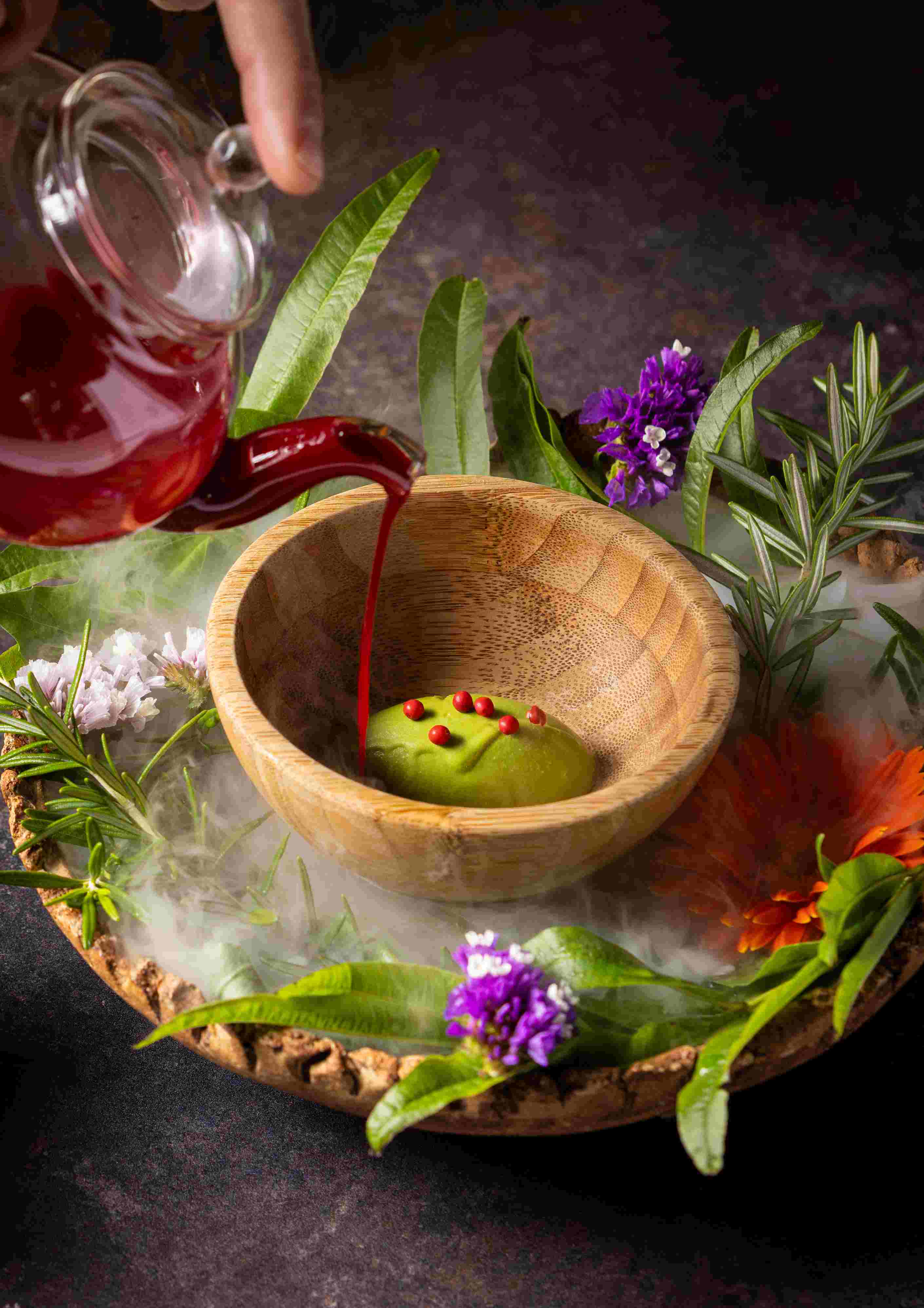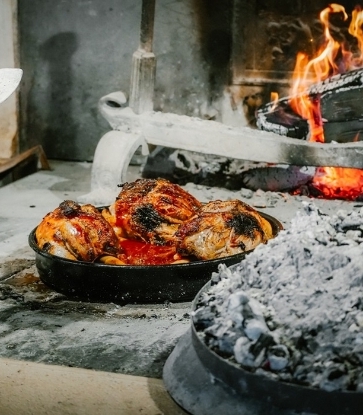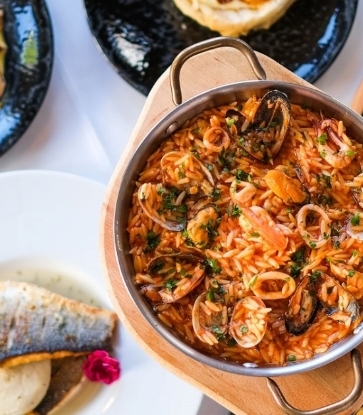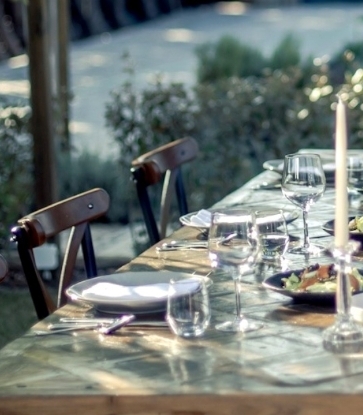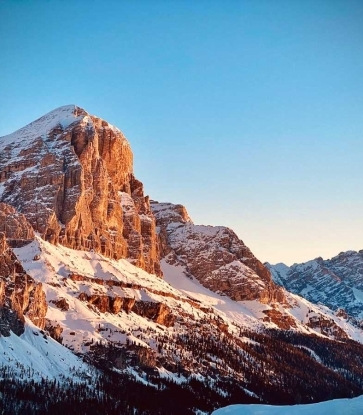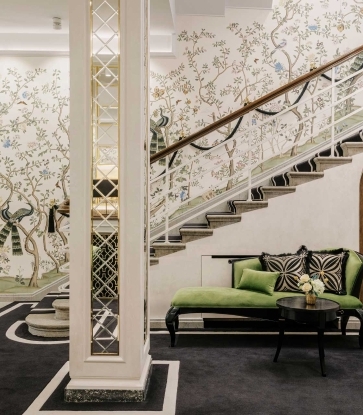Among the many wonders of Tenerife is a landscape that is sure to satisfy the expectations of any nature lover. Beaches, cliffs, forests, and volcanoes make up an island that also has its own clear culinary identity. Its gastronomic heritage is one of great diversity that reflects its geographical location.
The island's cuisine includes typical dishes and ingredients such as gofio (roasted grain flour), almogrote (spiced cheese spread), sancocho (traditional meat and vegetable stew), and ropa vieja (stewed beef and tomatoes with a sofrito base). Another common local specialty is mojo sauce, made with garlic, vinegar, cumin, and oil, with a number of variants containing extra ingredients. It is usually used as an accompaniment with dishes like 'papas arrugadas' (literally 'wrinkled potatoes'), but also as a base for other recipes. As for desserts, there's frangollo (a milk-based dish with a variety of flavorings including lemon and almonds), rapadura (a sugar cane based sweet), or the local Canarian bananas.
Day 1: The Action Begins!
There's less than 100km between the northern and southernmost points of Tenerife and, although it has public transport, the most practical way to get around is to rent a car and move freely about the island without worrying about timetables and connections. What's more, the TF-5 and TF-1 roads will allow you to travel around the island quickly and comfortably.Morning
Pick up your rental car at the airport in the north of the island, and you're ready to set off on your first excursions. Start with San Cristóbal de La Laguna, the second most populated city in Tenerife, with was declared a World Heritage Site by UNESCO in 1999 for being a unique example of a colonial city without walls.Being here also presents the fabulous opportunity to visit some of the wineries in this area. In fact, Tacoronte-Acentejo wines can only be found along this northern edge of the island, where we have begun our journey. The landscape is covered with vineyards located between 100 and 1,000 meters above sea level. A key feature of these wines is their organoleptic characteristics that are influenced by the peculiar orography and climate of the territory. The grapes are grown on volcanic soil, facing the sea, on steep slopes, and in soils rich in organic matter with little lime, which provides us with unique wines to enjoy.

The viticulture of the Canary Islands did not suffer the phylloxera that devastated vineyards all over Europe in the 20th century, meaning it's one of the oldest varietal heritages on the continent and considered one of the centers of vine biodiversity. The varieties grown here are local and indigenous, and a very limited number of Canary Island wines reach the shores of Spain or the rest of Europe, making your trip here a magnificent and rare opportunity to get to know the wines of Tenerife.
Lunch
After your vineyard visit, stay in San Cristóbal de La Laguna for lunch at Silbo Gomero. The name of the restaurant refers to the system of communication (by means of whistles) that is traditional among natives of the area. The chef here is Braulio Simancas and his cooking is inspired by the culinary specialties of the territory, such as mojo, on which many of his dishes are based, and stews, to which he adds a contemporary touch. The chef is an advocate of Tenerife's produce, of the flavors, textures, and aromas of the environment, and of seasonal ingredients. Undoubtedly, Braulio is a great ambassador for the fruitful relationships between small producers and local businesses. If you like cheese, then you're in luck, as the restaurant offers unique options refined by the chef himself.
Afternoon
After lunch, drive along the TF-5 and take exit 32 to get to Lago Martiánez in Puerto de la Cruz, still in the north of the island; the journey will take around 30 minutes. Lago Martiánez is an area of about 100,000 square meters that includes an artificial lake, several swimming pools, gardens, and an open-air sculpture museum, all designed by the artist César Manrique. This leisure center is the ideal place to swim, relax, have a drink, and enjoy the views of the sea and Mount Teide.
After this leisurely break, drive to the hotel Bahia del Duque, located in the sandy beaches of Costa Adeje. It will take approximately one hour on the TF-1 to reach here.
Dinner
Once settled in, shower, spruce yourself up, and dress to impress for dinner at Nub, located in the hotel and recognized with a MICHELIN Star since 2018. Its chefs, Italian Andrea Bernardi and Chilean Fernanda Fuentes, present a very personal culinary offering, influenced by their ways of life. Since they come from different countries, the couple have established their own culinary world after exploring both their gastronomic origins. They have built a bridge between cultures, while never forgetting the Canarian cuisine that surrounds them. The dining experience begins on the terrace with appetizers and snacks, continues with the main courses in the lounge, and ends at the bar where the desserts are served.
Hotel
Bahia del Duque, awarded One MICHELIN Key, was the first luxury resort in the region and is one of its most beautiful. The hotel's gorgeous gardens, oasis-like pools, manicured trails, and villas with bright rooms (most with views) will make you feel like you are in a small slice of paradise. The team, dressed in traditional Canarian clothes, are friendly and will ensure you have a comfortable stay. The hotel boasts nine restaurants, 14 bars and lounges, a 24-hour gym, a children's club, an observatory, and a spa.
Another accommodation option is The Ritz-Carlton, Abama, located in Guía de Isora on the west of the island. It's a hotel complex with luxury villas, eight swimming pools, a golf course, a private beach, and a spa. It also benefits from magnificent views and the hotel staff will welcome you with a glass of champagne.
For those who want a little more privacy and to get away from your fellow tourists, choose the Royal Garden Villas & Spa. Its attractions include a golf course and 28 villas, each with its own swimming pool.
Day 2: Mount Teide, Cliffs, and a 1,000-Year-Old Tree
Morning
Start the day with a good breakfast on the spectacular terrace of El Bernegal in the Bahía del Duque, accompanied by magnificent views of La Gomera island and the Atlantic Ocean. The full buffet includes, among others, fresh orange juice, a selection of breads, a variety of fruits, eggs, sausages, and salads. There's a good chance that the hardest part of your day will be deciding what to have for breakfast.It would be foolish to come to Tenerife without taking a trip to Mount Teide, especially if it's your first time on the island. Teide is a volcano and the highest peak in Spain, over 3,700 meters high, and is one of the 10 most visited national parks in the world. To enjoy the landscape in all its splendor, it's best to go early in the morning. As this is a very busy enclave, it's also recommended to plan weeks in advance to avoid any unwanted surprises. Access to the volcano can be made by car, cable car, or hiking.

Lunch
After this geographical excursion, move to the area of La Orotava, for a table at Haydée by Víctor Suárez. This One MICHELIN Star restaurant is located in an elegant mansion and spread across two dining spaces: a terrace and an indoor lounge. Víctor Suárez's background in the kitchens of great chefs such as Martín Berasategui shines through in his impressive cooking, which is creative yet still rooted in traditional Canarian recipes, with nods to other cuisines too. There are two menus, Raíz, with 13 courses, and Atlántico, with nine.
Afternoon
After lunch, take a stroll around La Orotava or relax on any of the three natural black sand beaches in the area: Bollullo, Los Patos, or Ancón. If you'd prefer to continue discovering all corners of the island of Tenerife, return to the wheel and head towards El Drago Milenario, in Icod de los Vinos, about 30 minutes away via the TF-5. El Drago Milenario is a huge, ancient tree that was declared a National Monument in 1917, standing about 18 meters high with more than 30 main branches and a base perimeter of 20 meters. It is the largest and oldest known of its kind in the world. After capturing a few great photos of the tree, you can head to the cliffs of Los Gigantes, about 30km away via the TF-373 and TF-82.Another must-visit on the island, this spectacular volcanic rock formation is located in Teno Rural Park, in the municipalities of Buenavista del Norte and Santiago del Teide. Los Gigantes is immensely steep, with drops that at some points reach 600 meters. As an added bonus, if you like scuba diving, boating, or other water sports, this is the place to be.

Dinner
It's time to indulge in the gastronomic delights of El Rincón de Juan Carlos, located on the fifth floor of the Royal Hideaway Corales Resort, where you'll spend the night.The restaurant, which holds Two MICHELIN stars, is headed by brothers Juan Carlos and Jonathan Padrón. The menu revolves around top-notch produce, much of it local, with special attention given to seafood. The chefs' harmonious, flavorsome cooking showcases skilful technique and their personal interpretation of classic Canarian recipes. The interior design of the restaurant, sophisticated and elegant, is the work of the Catalan Mercè Borrell.

After dinner, take a walk through the coastal town of La Caleta, have an evening stroll along the beach, or retire to your room and rest up before the journey home tomorrow.
Hotel
The Royal Hideaway Corales Resort, awarded One MICHELIN Key, divides its facilities into two parts: The Royal Hideaway Corales Suites, designed more for families; and The Royal Hideaway Corales Beach, for adults only. Among the complex's restaurants, in addition to El Rincón de Juan Carlos, is San-Hô, which is led by chefs Adrián Bosch and Eduardo Domínguez, and holds One MICHELIN Star.The next day, don't forget to enjoy breakfast, considered one of the best in the country: good coffee, a wide range of juices and organic fruit, a variety of breads, pastries, and even acorn-fed Iberian ham.

Last Stop
On the way to the airport, if your flight leaves from the north and you have time, stop in Santa Cruz de Tenerife. In its municipal market Nuestra Señora de África, known as La Recova, you can buy traditional Canarian products, including plenty of food and drink, to take home with you as a souvenir. In the same city, there is the Calle del Castillo, a busy place full of stores where you can buy souvenirs.And one last tip: in February or March every year the famous Carnival of Santa Cruz de Tenerife is held. If you happen to be visiting during this time, make sure you check it out as it's a truly unique experience!

Address Book
Drago Milenario. C. Arcipreste Ossuna, 1, 38430 Icod de los Vinos. Tel.: 922 814 510Lago Martíanez. Av. de Cristobal Colón, s/n, 38400 Puerto de la Cruz. Tel.: 922 385 955
Los Acantilados de los Gigantes. Mirador Los Gigantes, 38683 Acantilados de Los Gigantes.
Mercado Municipal Nuestra Señora de África. Av. de San Sebastián, 51, 38003 Santa Cruz de Tenerife. Tel.: Teléfono: 922 214 743
Teide. Ctra. TF-21, Km. 40,2 - Parque Nacional del Teide 38002 La Orotava
Hero Image: View of Teide Volcano from La Crucita viewpoint (© tane-mahuta/iStock)



